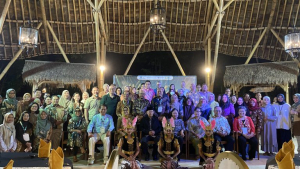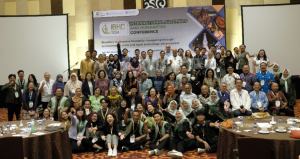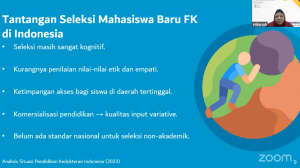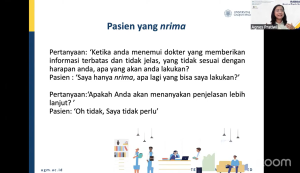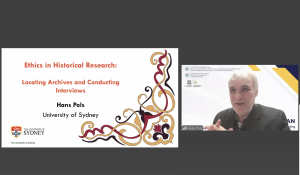Enhancing the Quality of Life of Chronic Patients in the Community through the Establishment of KASIH (Humanistic Palliative Care Cadres)

Living with a chronic illness is not only a challenge for patients, but also for their families and the surrounding community. Long-term care, psychological burdens, and limited access to health services often create complex needs that go beyond medical treatment alone. In this context, a palliative care approach plays a crucial role in improving quality of life by addressing medical, emotional, social, and spiritual dimensions of care.
Responding to this need, the Master’s Program in Bioethics, Graduate School of Universitas Gadjah Mada, in collaboration with the Center for Bioethics and Medical Humanities (CBMH) as part of the UNESCO Chair on Bioethics, organized a community engagement program entitled “Enhancing the Quality of Life of Chronic Patients in the Community through the Establishment of KASIH (Humanistic Palliative Care Cadres)”. The activity was held on 27–28 August 2025 at RW 10 Community Hall, Bangunrejo, Kricak Village, Yogyakarta, and was attended by 50 participants, consisting of community health cadres and family representatives of palliative care patients.
During the program, participants were equipped with essential knowledge and practical skills in palliative care through a series of thematic sessions. These included Fundamentals of Palliative Care delivered by Prof. Christantie Effendy, S.Kp., M.Kes.; Identification of Palliative Patients’ Needs by Ns. Wahyu Dewi Sulistyarini, M.S.N.; The Importance of Psychosocial and Spiritual Aspects in Palliative Care by Prof. Sismindari, Apt., SU., Ph.D.; and Therapeutic Communication in Palliative Care, facilitated by the training team.
In addition to theoretical sessions, participants engaged in hands-on practice sessions designed to strengthen community-based caregiving skills. These included Activity and Mobilization Care Practice led by drg. Agnes Bhakti Pratiwi, M.P.H., Ph.D.; Personal Hygiene Care Practice facilitated by dr. Wika Hartanti, M.I.H. together with Mahmasoni Masdar, S.Kep., Ns., M.Kep.; and Therapeutic Communication Practice guided by Ns. Wahyu Dewi Sulistyarini, M.S.N. in collaboration with Ika Setyasari, S.Kep., Ns., M.N.Sc. All practical sessions were conducted with close facilitator support, enabling participants to directly apply relevant skills for home- and community-based care.
Through the establishment of KASIH, the program aims to develop community cadres who can serve as the frontline support system for chronic patients within families and neighborhoods. These cadres are expected not only to provide basic palliative care assistance, but also to act as a vital link between patients, families, and professional healthcare providers—grounded in ethical principles of compassion, dignity, and solidarity.
This initiative reflects UGM’s and the UNESCO Chair on Bioethics’ commitment to advancing the Sustainable Development Goals (SDGs), particularly SDG 3 (Good Health and Well-being) and SDG 10 (Reduced Inequalities). By strengthening community capacity and promoting holistic, human-centered care, the KASIH program seeks to ensure that palliative care services reach even the most vulnerable populations and contribute to sustained improvements in the quality of life of chronic patients.
Editor : Rafi





